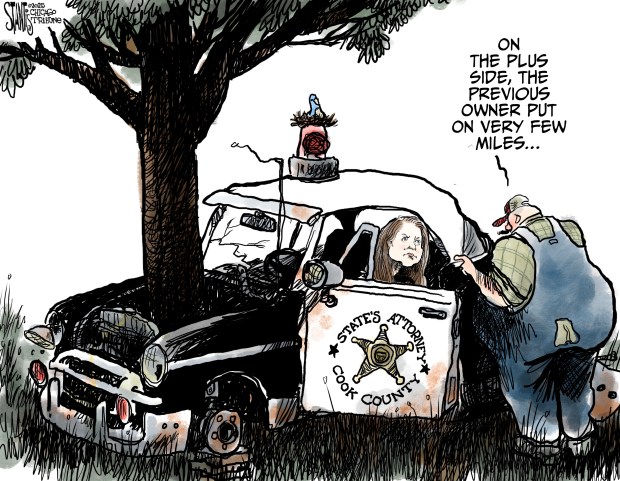Two and a half hours. That is how quickly one could travel from Chicago to St. Louis with new high-speed rail infrastructure.
That could cut travel time nearly in half from current levels, saving millions of riders something money can’t often buy: time.
For the first time in decades, there is a real opportunity and hunger for investments in high-speed rail projects. From Los Angeles to Miami, it’s happening across the United States.
Other regions in the U.S. are already seeing their plans for high-speed rail infrastructure bear fruit. Earlier this spring, the Brightline West high-speed train project broke ground. When completed, Brightline West will be the first operating bullet train in the United States, connecting Las Vegas to Southern California with 200 mph electric trains by 2028.
This serves as a great example of what could be possible in the Midwest.
The Midwest has a number of major cities all within a day’s drive, providing an excellent geographic canvas for the building of an effective passenger rail network. This network could connect people and economies in a safe, efficient and environmentally friendly way.
To achieve this, we must take the steps now to invest in a high-speed rail future while making improvements to our current passenger rail network.
Luckily, Illinois has already laid the groundwork. In 2021, Gov. J.B. Pritzker wisely created the first-of-its-kind Illinois High-Speed Railway Commission to lead the way for our state and region to plan for a high-speed rail future.
The commission will issue a report to the governor and General Assembly each year studying what high-speed rail could look like in Illinois and what steps need to be taken to get there. The commission’s work, and the investments they require to do it, will provide the foundation necessary to ensure Illinois and the Midwest can host a high-speed rail network in the years to come.
While that planning work is being done, action should be taken to improve our current passenger rail system. That requires making critical investments in Chicago’s Union Station.
Last year, the Illinois congressional delegation, Pritzker, Mayor Brandon Johnson, and other private and public stakeholders helped secure $93.6 million from the Department of Transportation to invest in Union Station. This funding will be used to renovate and expand its platforms, bringing them into compliance with Americans with Disabilities Act standards and improving ventilation systems and air quality for nearly 120,000 Amtrak and Metra weekly passengers.
Additionally, in my role as the lead Democrat on the Appropriations Subcommittee that funds the Department of Transportation, I was able to secure $40 million in this year’s government funding bill for Amtrak to build on this Union Station investment.
With this funding, Amtrak can take steps to upgrade safety and accessibility, expand access and increase capacity at Union Station. These investments are a good start, but much more is needed to prepare Union Station and its surrounding rail infrastructure for an effective passenger rail network.
There are also efforts being taken at the state and city level to better integrate Chicago’s rail systems, including the CTA, Metra and Amtrak. This integration will allow passengers to move seamlessly between rail networks and improve efficiency within rail service.
These investments pay a return. Once complete, riders will begin to experience better service, greater frequencies, faster train speeds and reduced trip times for traveling through our region.
The path forward is clear: Illinois should continue to improve its current rail infrastructure and better integrate that system into our transit network while laying the groundwork for a high-speed rail future.
If we chart this course, we can ensure the Midwest is not left behind as cities around the country renovate and innovate their transportation systems. We will be positioning ourselves well for the creation of an effective passenger rail network that our nation and region will benefit from.
Better yet, we can ensure that high-speed rail in the Midwest is the ideal for the rest of the nation to follow.
U.S. Rep. Mike Quigley represents Illinois’ 5th Congressional District.
Submit a letter, of no more than 400 words, to the editor here or email letters@chicagotribune.com.



